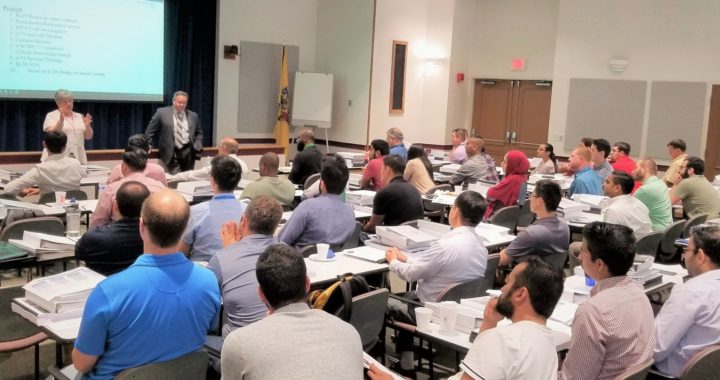
A mentoring program can be an effective recruitment and retention strategy, and as such, should be supported by leadership. A mentor will be a senior staff member who functions as a coach, advisor, and teacher to a new employee or one who requests assistance and guidance in career development or personal growth within the organization. A mentor should be an individual outside of a mentee’s chain of supervision. Both mentors and mentees can benefit from the relationship. Mentors benefit from identification as a role model, and can learn from the mentee’s questions and knowledge.
NJDOT’s Women in Transportation group runs a Department-wide mentoring program to encourage the sharing of knowledge and expertise among employees to build “a stronger, more adaptive organization.”
MENTORING
WHAT
- Mentoring occurs when senior staff act as mentors who assist individuals in working toward personal and professional goals and in gaining knowledge of the organization. Established mentoring programs can support recruitment, retention, knowledge management and workforce development.
WHY
- Communicates knowledge of organizational culture
- Provides a reliable contact outside the immediate work hierarchy
- Guides individual in achieving career goals
- Aids in retention of talent
- Creates connections of trust within the organization
WHEN
- Individuals may seek a mentor when they wish to advance in a career, and when they need information on “how things work”
- Mentors listen, question, encourage, assess and help mentees develop greater professional skills to achieve personal and career goals
HOW
- Mentors should have no performance management interest in the mentee
- Mentoring may be effective in building stronger ties with new employees by pairing them with senior workers, thereby contributing to retention
- Participation is voluntary
- Goals, objectives, and developmental needs identified at outset
- Meetings and discussions are confidential
- Ending the relationship at any time should be acceptable
- Mentoring programs must be supported by leadership
PRACTICE CONSIDERATIONS
- Mentors should have no performance management interest in the mentee
- Mentoring may be effective in building stronger ties with new employees by pairing them with senior workers, thereby contributing to retention
- Participation is voluntary
- Goals, objectives, and developmental needs identified at outset
- Meetings and discussions are confidential
- Ending the relationship at any time should be acceptable
- Mentoring programs must be supported by leadership
LINKS & RESOURCES
TBD





